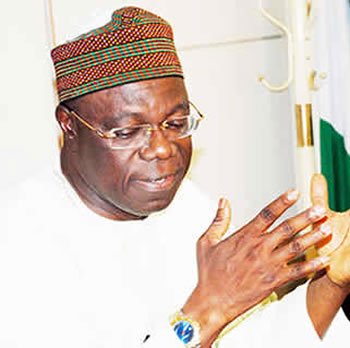Prof. John Idoko, the Director General, National Agency for the Control of AIDS, has said the people receiving antiretroviral drugs would increase from 600,000 to 1.2 million in 2014.
Idoko said this in Abuja on Tuesday during the 2013 meeting of NACA and State Agencies for the Control of AIDS.
He said: “Key of those things we want to do are: one, we want to double the numbers of people who are on drugs right now from 600,000 to 1.2 million.
“We want to test so many.
“Our target is 80 million.
“In the last four weeks, we have raised the tempo round the country as far as testing is concerned.
“We want to ensure that we can intervene in pregnant women who are HIV positive so they don’t transmit the virus to their babies.
“We also want to address the issue of young people.
“Seventy per cent of this country’s population is young and most at risk.
“Those are the cardinal things we need to take forward.
“To discuss with the people at the state level to see how they can go back and start looking at the data and the plan that can take us there.”
Idoko said the aim of the forum was to ensure that states, local and the communities drove the response to achieve the universal access target by 2015.
Idoko said one of the biggest challenges the Agency faced was the distribution of the HIV and AIDS fund to civil society groups in the states.
He noted that penalties would be given to states that failed to disburse the HIV and AIDS funds properly.
He said: “What we agreed at the last mid-term review meeting is that if by the end of December 31, any state that has not disbursed its fund, we will take it and allocate it to something that is our priority.”
In her contribution, the Director, Partnership and Coordination at NACA, Hajiya Maimuna Mohammad, said the forum would ensure that each state got its target on the number of people that would be tested for HIV.
Mohammed said without target the states would not be able to plan properly.
She said: “We want to test more people in HIV but NACA cannot do it alone.
“So without target, we cannot plan very well.
“We will assign targets to each state to go back and plan how they will carry it out.”
Mohammed said the challenges for the fight against HIV and AIDS were human resource and funding.
Mohammed said the private sector would be involved to source for funds in order to ensure ownership.
She said all the states now had resource mobilisation plan, adding that they would identify key stakeholders within the states for HIV funding.
Earlier, the Director of Treatment, Care and Support, Kaduna State AIDS Control Agency, Dr. Mark-David Anthony, said the forum would identify the right interventions for the fight against HIV and AIDS.
Anthony said: “We are to look at the processes in which we want to respond to HIV and AIDS in 2014.
“We are looking at what we have done in 2013 in responding to HIV and AIDS so as to see the progress we have made.
“To see where the gaps and challenges are.
“Based on that, we will be able to identify the right intervention.”
Anthony said awareness level had increased in the country, calling on Nigerians to know their status so as to enable them to stay healthy.
Meanwhile, the Association of Women Living with HIV and AIDS in Nigeria can now access funds from the National Agency for the Control of AIDS.
Esther James, an Advocacy Officer, disclosed this in an interview with the News Agency of Nigeria on Tuesday in Abuja.
James said the success was due to the association’s continued advocacy to relevant stakeholders.
James said the association also had access to HIV fund from the UN Development Programmes and UN Population Funds.
She said the ability of members to access HIV funds would ensure positive results in the fight against the virus.
She added: “We have developed a four-year plan that will be implemented with the aid from the UNFPA, while that of UNDP will run for two years.
“We have carried out stigma reduction activities in Plateau and FCT communities, using Anti-Stigma Shame Discrimination Denial Ambassadors peer mentors.”
According to her, People Living with HIV and AIDS have been called all kinds of names but stigma is now reducing due to the association’s intervention.
James said: “They demonstrated the acceptance of PLWHA in these communities by showing them love and care.
“ASWHAN is also using a campaign programme called ‘Heal My World’ through a radio programme to sensitise the public to stigma reduction, shame and denial, and information on prevention.
“We have also formed clubs in the FCT and Jos communities which are contributing to stigma reduction.”
Trending
- Tiger Base Police: Commander implicates Unit in death of detainee (4)
- N500m debt, let down by lady: Mr Macaroni gives update
- Police, JTF rescue three kidnapped victims in Anambra
- Navigating in-law interactions, by Jacob Iroko
- Six students die as meningitis hits university
- Why NGF avoids commenting on contentious political issues – DG
- Tributes pour in for George Foreman
- Ifon/Ilobu/Erin Osun: Adeleke, security chiefs adopt tough measures


